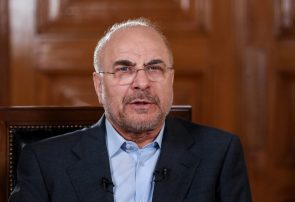Majlis Speaker Urges Practical Legislation
TEHRAN (Iran News) He criticized the practice of approving laws that cannot be implemented effectively. “It is unacceptable for the Parliament to pass laws that lack practical applicability. This approach is neither logical nor beneficial,” he stated. He stressed that lawmakers should adopt a pragmatic approach, ensuring that legislation aligns with the realities of governance and society’s needs.
He further noted that “the first violator of impractical laws is the lawmaker themselves,” urging Parliament to avoid this contradiction. “Such behavior creates the initial obstacle to rule of law in society,” he added.
Describing the Parliament’s Research Center as the “detached intellect” of the legislature, Qalibaf underscored its broader significance. “This center doesn’t just belong to the Parliament but is a resource for the Islamic Revolution and the nation’s governing system,” he said. He called on the center to devise strategic frameworks that reflect on past, present, and future challenges, ensuring sustainable progress.
Qalibaf lauded the center’s initiatives, such as the establishment of a governance school, innovation hubs, a student parliament, and public opinion polling units. He encouraged their expansion, emphasizing that such efforts contribute to informed decision-making and robust policy development.
He stressed the necessity of prioritizing foreign policy in legislative considerations. “Supreme Leader Ayatollah Khamenei has repeatedly emphasized the importance of foreign policy, and the Parliament must heed this directive,” he said. The Speaker also highlighted the need for a collaborative approach in lawmaking, advocating for “collective wisdom and crowd-sourcing” to create laws that resonate with society.
In his remarks, Qalibaf noted the critical role of young talent within the Research Center, urging them to blend theoretical knowledge with practical experience by engaging with seasoned experts. “We require both theoretical and practical wisdom to succeed,” he said.
The Speaker called for stronger collaboration between the Parliament’s Research Center and the executive branch. He highlighted President Masoud Pezeshkian’s emphasis on using comprehensive national plans as a framework for cooperation. “Our shared foundation is the macro policies of the system and the Seventh Development Plan,” he said, referring to the country’s long-term roadmap for economic and social progress.
Qalibaf praised the Research Center’s contributions to the Seventh Development Plan, describing it as a collective effort that reflects past realities. However, he acknowledged existing debates, such as whether the plan’s target of 8% economic growth is achievable. “With proper investment and productivity improvements, at least 4% of this target is attainable,” he argued.
The Seventh Development Plan, according to Qalibaf, serves as a “national covenant” requiring collective commitment. He cited public cooperation in energy conservation as an example of citizens’ willingness to support national initiatives when approached effectively.
He emphasized the importance of engaging the public in policymaking, noting that laws must be rooted in both societal acceptance and Islamic principles. “The foundation of legislation must stem from Sharia, and we continue to pursue this objective,” he said.
In closing, Qalibaf reiterated the need for evidence-based policymaking grounded in robust research. He urged the Research Center to prioritize logical reasoning, high academic standards, and humility in its work, asserting that these qualities would enhance the center’s credibility and contribute to its researchers’ professional and personal fulfillment.
Looking ahead, he announced plans for field visits to the Research Center, aiming to strengthen ties and oversee its activities firsthand. “By embedding research within the heart of society, we can ensure that our laws and priorities address real needs and achieve meaningful impact,” he concluded.
The Speaker’s remarks reflect a broader commitment to enhancing Iran’s legislative processes, ensuring they are informed by rigorous research and aligned with practical realities. By fostering collaboration between institutions and engaging the public, Iran’s Parliament aims to build a governance framework that is both effective and inclusive.
- source : IRAN NEWS POLITICAL DESK






























